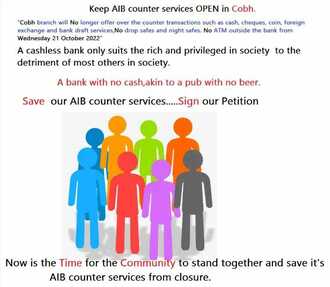- Featured
- Animal Rights
- Anti-racism
- Arts & Culture
- Children
- Climate
- Corporate accountability
- Crime
- Disability rights
- Economic
- Education
- Environment
- Food and Sustainable Production
- Gender Equality
- Governance and Transparency
- Health
- Housing
- LGBT Rights
- Mental health
- Northern Ireland
- Planning
- Privacy and Data Protection
- Rural Inequality
- Social Justice
- Trade
- Transport and Infrastructure
- Workers' Rights
- More
-
Keep cash services in : AIB BuncranaAIB is moving 70 of their branches to cashless banking. [1] Not only will going cashless mean no notes, coins, cheques, foreign exchange, bank drafts - it will remove any drop safes, night safes and ATMs outside. This is going to cause huge hardship for many people - especially older and vulnerable people, local businesses, people who don’t have access to the internet. The greed and recklessness of banks, including AIB bosses, played a crucial role in bringing about the financial crash. [2] Homes were repossessed by banks, families lost their incomes, young and not-so-young people were forced to emigrate, businesses had to close. We cannot stand by while our majority state-owned bank hurts our communities again. [1] https://www.rte.ie/news/business/2022/0719/1311026-aib-to-turn-70-branches-cashless-expand-an-post-deal/ [2] https://pai.ie/bank-bailout-costs-state-nearly-e42-billion/ https://www.bbc.com/news/world-europe-325169429 of 100 SignaturesCreated by Rachael Farrell
-
Keep cash services in : AIB New RossAIB is moving 70 of their branches to cashless banking. [1] Not only will going cashless mean no notes, coins, cheques, foreign exchange, bank drafts - it will remove any drop safes, night safes and ATMs outside. This is going to cause huge hardship for many people - especially older and vulnerable people, local businesses, people who don’t have access to the internet. The greed and recklessness of banks, including AIB bosses, played a crucial role in bringing about the financial crash. [2] Homes were repossessed by banks, families lost their incomes, young and not-so-young people were forced to emigrate, businesses had to close. We cannot stand by while our majority state-owned bank hurts our communities again. [1] https://www.rte.ie/news/business/2022/0719/1311026-aib-to-turn-70-branches-cashless-expand-an-post-deal/ [2] https://pai.ie/bank-bailout-costs-state-nearly-e42-billion/ https://www.bbc.com/news/world-europe-325169427 of 100 SignaturesCreated by Adrienne Doyle
-
Keep cash services in Kilmallock, LimerickAIB is moving 70 of their branches to cashless banking. [1] Not only will going cashless mean no notes, coins, cheques, foreign exchange, bank drafts - it will remove any drop safes, night safes and ATMs outside. This is going to cause huge hardship for many people - especially older and vulnerable people, local businesses, people who don’t have access to the internet. The greed and recklessness of banks, including AIB bosses, played a crucial role in bringing about the financial crash. [2] Homes were repossessed by banks, families lost their incomes, young and not-so-young people were forced to emigrate, businesses had to close. We cannot stand by while our majority state-owned bank hurts our communities again. [1] https://www.rte.ie/news/business/2022/0719/1311026-aib-to-turn-70-branches-cashless-expand-an-post-deal/ [2] https://pai.ie/bank-bailout-costs-state-nearly-e42-billion/ https://www.bbc.com/news/world-europe-325169424 of 100 SignaturesCreated by Lucy Sullivan
-
Keep cash services in Tipperary local branchesAIB is moving 70 of their branches to cashless banking. [1] Not only will going cashless mean no notes, coins, cheques, foreign exchange, bank drafts - it will remove any drop safes, night safes and ATMs outside. This is going to cause huge hardship for many people - especially older and vulnerable people, local businesses, people who don’t have access to the internet. The greed and recklessness of banks, including AIB bosses, played a crucial role in bringing about the financial crash. [2] Homes were repossessed by banks, families lost their incomes, young and not-so-young people were forced to emigrate, businesses had to close. We cannot stand by while our majority state-owned bank hurts our communities again. [1] https://www.rte.ie/news/business/2022/0719/1311026-aib-to-turn-70-branches-cashless-expand-an-post-deal/ [2] https://pai.ie/bank-bailout-costs-state-nearly-e42-billion/ https://www.bbc.com/news/world-europe-325169422 of 100 SignaturesCreated by Smaranda Maier
-
Keep cash services in AIB SalthillAIB is moving 70 of their branches to cashless banking. [1] Not only will going cashless mean no notes, coins, cheques, foreign exchange, bank drafts - it will remove any drop safes, night safes and ATMs outside. This is going to cause huge hardship for many people - especially older and vulnerable people, local businesses, people who don’t have access to the internet. The greed and recklessness of banks, including AIB bosses, played a crucial role in bringing about the financial crash. [2] Homes were repossessed by banks, families lost their incomes, young and not-so-young people were forced to emigrate, businesses had to close. We cannot stand by while our majority state-owned bank hurts our communities again. [1] https://www.rte.ie/news/business/2022/0719/1311026-aib-to-turn-70-branches-cashless-expand-an-post-deal/ [2] https://pai.ie/bank-bailout-costs-state-nearly-e42-billion/ https://www.bbc.com/news/world-europe-3251694265 of 100 SignaturesCreated by Alice Apple Kelly
-
Keep cash services in : AIB CarrigalineAIB is moving 70 of their branches to cashless banking. [1] Not only will going cashless mean no notes, coins, cheques, foreign exchange, bank drafts - it will remove any drop safes, night safes and ATMs outside. This is going to cause huge hardship for many people - especially older and vulnerable people, local businesses, people who don’t have access to the internet. The greed and recklessness of banks, including AIB bosses, played a crucial role in bringing about the financial crash. [2] Homes were repossessed by banks, families lost their incomes, young and not-so-young people were forced to emigrate, businesses had to close. We cannot stand by while our majority state-owned bank hurts our communities again. [1] https://www.rte.ie/news/business/2022/0719/1311026-aib-to-turn-70-branches-cashless-expand-an-post-deal/ [2] https://pai.ie/bank-bailout-costs-state-nearly-e42-billion/ https://www.bbc.com/news/world-europe-325169422 of 100 Signatures
-
Stop AIB Millstreet going CashlessMillstreet is a rural community already deprived of basic services. Our rural businesses will struggle as a direct result of the withdrawal of cash services from AIB Millstreet. There are serious concerns for our elderly who cannot travel 30minutes to the nearest cash bank and will be vunderable with cash being left in their homes. We can not allow the erosion of an already deprived area to continue.210 of 300 Signatures
-
Keep Clifden's AIB facilitiesAIB Clifden needs to keep the current facilities, not only for the elderly, but for those not familiar with banking online and for those who do not wish to live in a cashless society8 of 100 SignaturesCreated by Dympna Heanue
-
Save AIB Kanturk Cash ServicesKanturk is a rural community already deprived of basic services. With below standard internet connectivity this decision by AIB, who claim that their decision is a response to digital usage, is a devastating blow to our rural community. Our rural businesses will struggle as a direct result of the withdrawal of cash services from AIB, Kanturk. The removal of cash services will mean we will no longer have access to cash or cheque services at the counter OR through the machines inside the branch. We are community already with limited garda availability and this decision by AIB raises serious security concerns for business and the public, particularly our elderly. We can not allow the erosion of an already deprived area to continue.507 of 600 SignaturesCreated by Lillian Meade
-
Keep AIB cash services in WaterfordThis is impacting on older people's independence and creating barriers such as having to travel to other branches. There's a huge impact to older people as many are not online. This is a big ultimatum to older people and it's taking away their agency and choice to have face to face interaction and support for cash services. Many older people would have safety and security concerns and others use banks as opportunity for social interaction. The bank is saying the post office is an alternative but in recent years many post offices have been closed in rural Ireland thus providing no choice now for customers in these areas with these bank service changes. Many post offices may not structurally have the capacity for large groups of people which may create large queues. This decision by AIB will also impact greatly on local businesses and communities in these areas. Many older people have been loyal customers for decades and their money has helped pay for those branches and services. This is being very disrespectful to them by not having these services available to them anymore. Many older people and people of all ages may have accessibility requirements around branches and travelling to them ie. sight impairments or/and physical disability. It's really important to remember that the Irish tax payer bailed out this bank and others during the 2008 financial crash . We own over 60% stake in AIB and there has been arbitrarily no consultation with us about this. I am calling on AIB Bank to reverse its decision to rollback cash services in AIB bank branches in Waterford (Ardkeen, Tramore and Lismore). Read more here: https://twitter.com/BPhillipsWriter/status/1549512192952762368175 of 200 SignaturesCreated by Bernadette Phillips
-
Keep Cobh AIB a full service branchTo keep banking accessible to all, normal services also digital, this is very important.314 of 400 SignaturesCreated by Vivienne Farrell
-
Introduce a statutory maximum working temperatureHot weather can make work unbearable and with record temperatures likely to be a trend in Ireland, we should introduce a statutory maximum working temperature after which employees are sent home.11 of 100 SignaturesCreated by Harvey McDermott

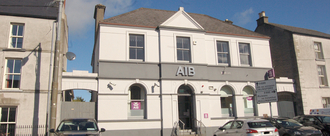



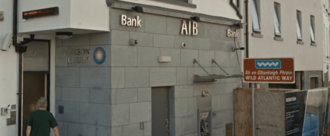


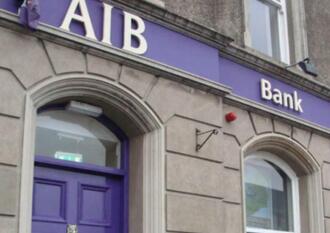
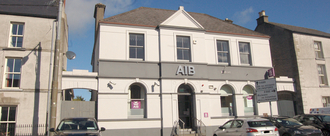.jpg)

